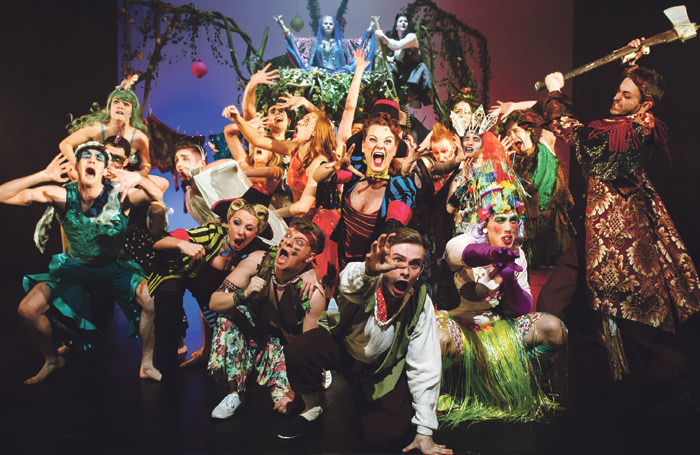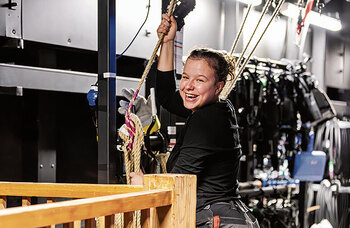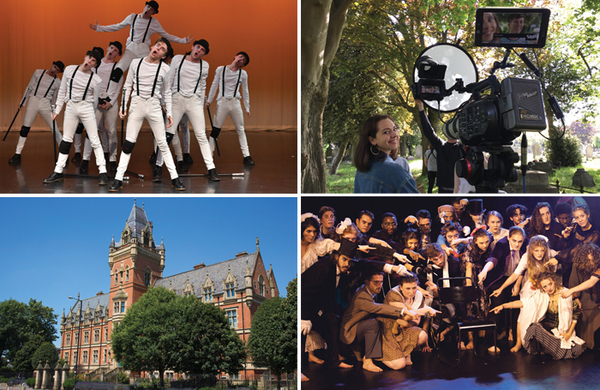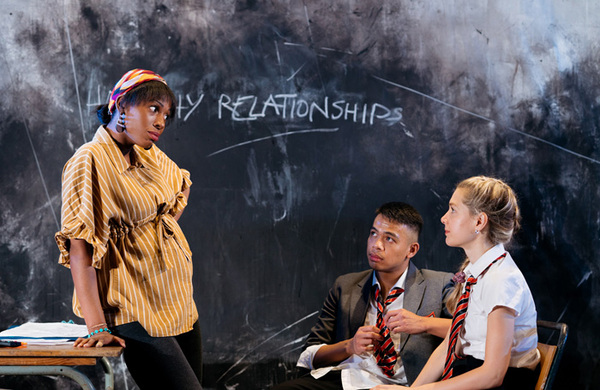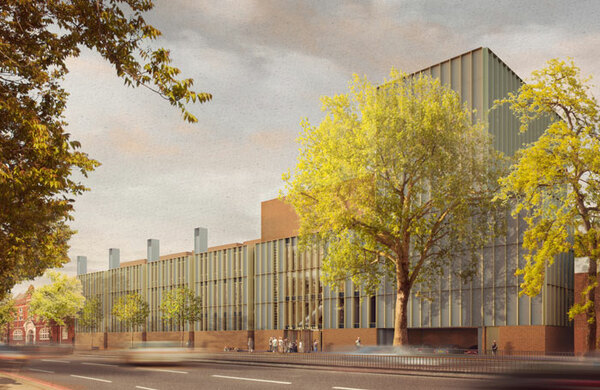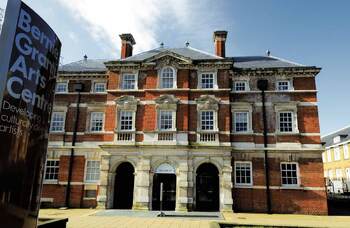The MTA: ‘We’re a college for life’
Looking for a faster way to prepare for a theatre career without losing out on quality? The MTA may well have the solution. Reaching the end of its first decade in 2019, the north London-based academy offers an intensive, two-year vocational training course that has seen it twice declared drama school of the year at The Stage Awards, most recently in 2017.
With a minimum of 40 hours of teaching per week across at least 40 weeks per year – more than many drama schools – it’s not a course for the half-hearted, cautions founder and principal Annemarie Lewis Thomas. The MTA’s aim, she says, “is to create multidisciplinary performers capable of sustaining a career”. She adds: “The more skills you have, the greater your chance of working.”
Focusing on acting, singing and dancing, prospective students need to demonstrate “strength in two of those disciplines and the ability to be taught the third”.
In return, the MTA offers successful applicants a number of unique opportunities that have marked it out as one of the most innovative and creative options for theatre students with serious ambition.
“We’re the only college that has a public performance every single term, the only college whose teaching faculty is exclusively experienced West End performers, the only one with a policy committed to new writing, and the first musical theatre college to offer classes in stage and screen, with students shooting a film every year as well as their showreels,” says Thomas.
Those productions she mentions cover the full gamut of what students can expect in their working lives. Alongside straight plays, revues, revivals of musicals and the staging of an entirely new, specially commissioned, musical, the MTA also produces its own pantomime.
“Every one of our shows involves external creatives because it’s a fairer way of casting. We pride ourselves on our students having parity of opportunity: everyone gets a fair shot,” says Thomas.
Alongside basic technical training in acting, singing and dancing, students are also introduced to a diverse range of disciplines including puppetry, voice-overs and mo-cap – a fast-evolving area of the industry.
But with only 22 places available each year, competition is tough, although the MTA’s #auditionfromhome facility – allowing applicants to upload self-tapes – provides an optional first step that is both easy and free. The next stage is the whole-day audition, where maximum numbers of 15 guarantee individual attention. An added bonus is that the administration fee has been reduced by a third this year to just £30 (which also includes two tickets for one of the MTA’s shows).
It’s a value-for-money proposition that holds true with the academy’s resources. Based in London’s Bernie Grant Arts Centre, students have access to substantial facilities including a 300-seat theatre, rehearsal spaces and even a gym for 15 hours every day (weekends included) with no hidden charges. Similarly, students have the opportunity to perform at the Bridewell Theatre in central London.
Launched this year, the MTA’s #50percent campaign aims to provide substantial help to students in financial need with half of available places requiring payment of only half the cost of standard fees. Its pioneering and influential involvement with mental health issues shows a serious commitment to offering practical and pastoral care.
Aiming to be “a pathway into the industry”, 100% of the MTA’s students have graduated with independent agents. Since 2016, all graduates have secured representation before their final term.
And it doesn’t end there, says Thomas. “We’re a college for life. Our graduates can come back for classes, masterclasses and 24/7 support throughout their careers. Theatre is such a rich source of employment – and challenges – for performers that the least we can do is to prepare our students properly.”
More about this organisation
Most Read
Across The Stage this weekYour subscription helps ensure our journalism can continue
Invest in The Stage today with a subscription starting at just £7.99
